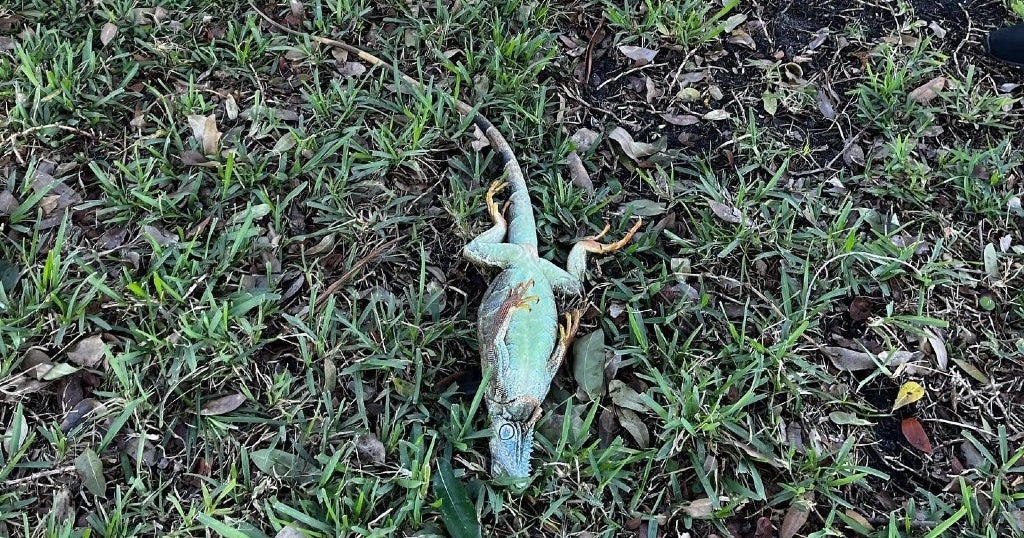MIAMI – It’s a South Florida phenomenon that draws laughter from across the country. When temperatures drop below a certain level, cold-stunned iguanas start falling out of trees. While it may sound bizarre, it happens.
Now the big question is – will it happen this week?
NEXT Weather meteorologist Lissette Gonzalez says the coldest air of the season, so far, arrives on Wednesday morning with lows falling to mostly the upper 40s. Some inland areas could see the mid-40s. You will need to bundle up and add extra layers since highs will struggle to reach 70 degrees with bright, winter sunshine.
But what about the iguanas?
The invasive species can’t handle cold temperatures very well. In general, iguanas begin to get sluggish or lethargic once the temperature drops below 50 degrees Fahrenheit.
Once the temperature drops below the mid-40s, iguanas go into a dormant or cold-stunned state and sometimes fall out of trees where they perch. They appear to be dead, but they are not. They remain breathing with critical body functions still operating. Iguanas go into this cold-stunned state as a way of protecting themselves until the temperature warms back up above 50 degrees.
NEXT Weather meteorologist Shane Hinton said he doesn’t expect any cold-stunned iguanas this week, but they will be affected by the temperatures and become lethargic. To what degree depends on the size of the iguana. Larger iguanas can tolerate cold for longer periods.
Many iguanas in South Florida have adapted to going deep into burrows where they stay insulated from the cold. They tend to also live close to large bodies of water, which tend to be warmer than the air temperatures, which helps them survive short cold snaps.
Invasive species
The green iguana, the Mexican iguana, and the spinytail iguana were originally brought to South Florida from Central and South America.
They’re considered an invasive species and they’ve become more than just a nuisance. The giant lizards have caused costly structural damage and even power outages. Iguanas have been seen eating gardens, getting into pools and even finding their way into toilets. They also have a reputation for passing salmonella to pets.
Experts say the iguana population is growing out of control and disrupting the lives of the state’s wildlife, including gopher tortoises, sea turtles and burrowing owls.
In 2021 the state banned pet owners from any future possession of iguanas. The giant lizards have almost no natural predators, one female can lay up to about 70 eggs a year.
Iguanas, like all non-native, invasive species, are not protected in Florida except by anti-cruelty law and can be humanely killed with a landowner’s permission.



